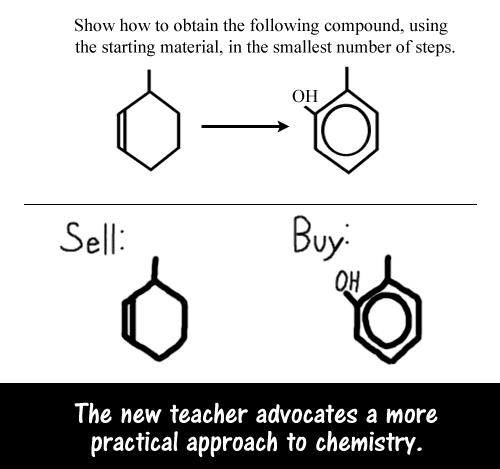ACS On Campus Rides into Houston Next Month
Updated: 2012-03-31 22:28:52
ACS On Campus heads to Houston, TX, on April 15, for ACS on Campus: Rice University. Sessions will range from a discussion of what the "Journal of the Future" will look like to a SciFinder Solutions Session demo with our partners at Chemical Abstracts Service.
For a complete list of events and speakers at Rice University, as well as an opportunity to RSVP, visit pubs.acs.org/page/4librarians/acsoc/rice.html. You can also find video, PowerPoint presentations, and other content from previous ACS On Campus events at pubs.acs.org/r/acsoc.
We look forward to seeing you on campus!

 Skepticism plays a central role in any kind of scientific research. To paraphrase Feynman, you should try never to fool yourself - and you are the easiest person to fool! We chemists all want to believe in the high yield, or the perfect recrystallization that causes us to turn cartwheels…until we realize that we can’t repeat [...]
Skepticism plays a central role in any kind of scientific research. To paraphrase Feynman, you should try never to fool yourself - and you are the easiest person to fool! We chemists all want to believe in the high yield, or the perfect recrystallization that causes us to turn cartwheels…until we realize that we can’t repeat [...] Welcome Back to CLT! Today's cartoon from Nick Kim, previously of "Base = Neutralized" CLT fame. See other CLT humor via Lab-Initio Enjoy!
Welcome Back to CLT! Today's cartoon from Nick Kim, previously of "Base = Neutralized" CLT fame. See other CLT humor via Lab-Initio Enjoy! Welcome back to CLT! Welcome to spring! See other CLT humor via Jesse Springer (I think?) Enjoy!
Welcome back to CLT! Welcome to spring! See other CLT humor via Jesse Springer (I think?) Enjoy! I forget that ChemFeeds allows me a very unique window into the popularity of various chemistry articles across chemistry publishers (e.g., ACS, RSC, Nature). For February, the most popular article was an editorial penned by Roald Hoffmann critiquing the chemistry community's response to the 2011 chemistry Nobel prize. What, Another Nobel Prize in Chemistry to [...]
I forget that ChemFeeds allows me a very unique window into the popularity of various chemistry articles across chemistry publishers (e.g., ACS, RSC, Nature). For February, the most popular article was an editorial penned by Roald Hoffmann critiquing the chemistry community's response to the 2011 chemistry Nobel prize. What, Another Nobel Prize in Chemistry to [...] Welcome back to CLT! This is the week my students have their exam on Electrophilic Aromatic Substitution See other CLT humor via ComicJK Enjoy!
Welcome back to CLT! This is the week my students have their exam on Electrophilic Aromatic Substitution See other CLT humor via ComicJK Enjoy! In the previous post, you have learnt that OXIDATION is the gain of oxygen atoms and REDUCTION is the loss of oxygen atoms. Today, we shall discuss them based on the gain or loss of hydrogen atoms. OXIDATION is also the loss of hydrogen atoms and REDUCTION is also the gain of hydrogen atoms. E.g....
In the previous post, you have learnt that OXIDATION is the gain of oxygen atoms and REDUCTION is the loss of oxygen atoms. Today, we shall discuss them based on the gain or loss of hydrogen atoms. OXIDATION is also the loss of hydrogen atoms and REDUCTION is also the gain of hydrogen atoms. E.g....